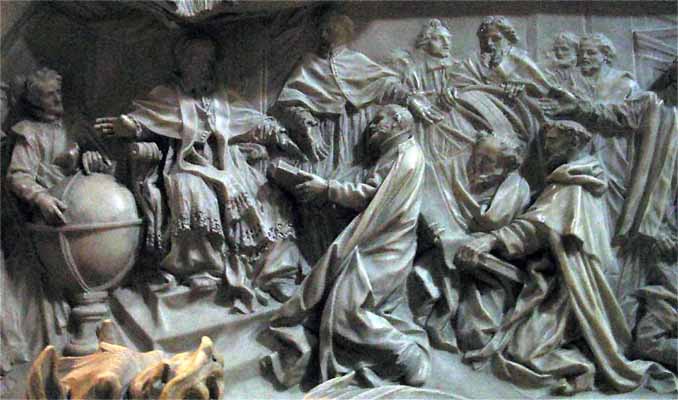 |
| presentation of the new calendar to Pope Gregory |
Often times when you are looking at dates for events in colonial times you see something like this:
Mary b. 3 Jan 1655/56
Robert d. 5 March 1703/04
The meeting was held 26 Nov 1673, the next meeting to be held Feb 1673
Since 527 A.D. the first of the year was marked on March 25. This was a great religious feast day; the Feast of the Annunciation of the Blessed Mary Virgin. The year was divided into quarters based on the great feast days: Annunciation, Midsummer Day or The Feast of St. John the Baptist on 24 June, Michaelmas Day or the Feast of the Birth of St. Michael on September 29, and The Feast of the Circumcision Jesus, now know as the Octave on January 1.
In the year 1582 the Catholic nations of Europe adopted the Gregorian Calendar which moved the beginning of the year back to Jan 1. The protestant countries including England and it's colonies did not adopt the new calendar and continued to use the March date. Because they were then two calendar systems the English double dated all days between January 1 and March 24th.
In 1752 England and it's colonies finally adopted the Gregorian Calendar and the double dating stopped.




No comments:
Post a Comment